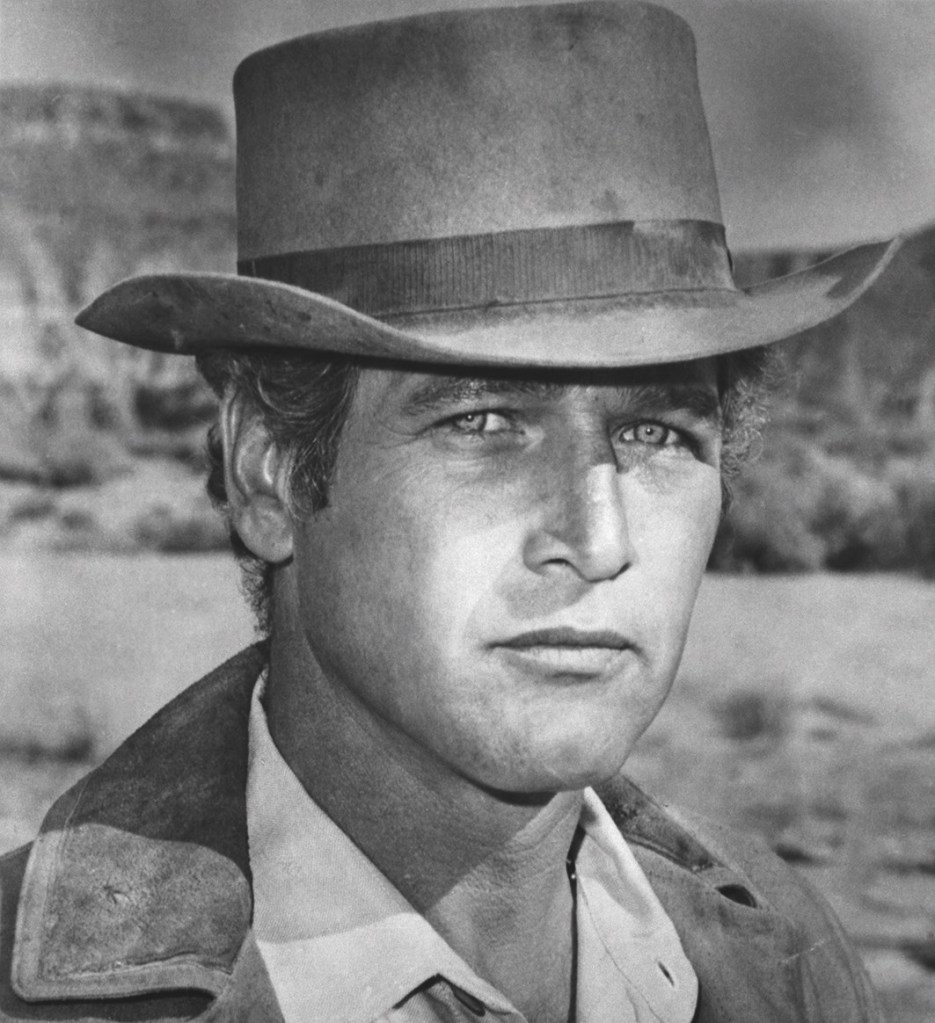Paul Newman explains at the beginning how this book came about: ‘I want to leave some kind of record that sets things straight and pokes holes in the mythology that’s sprung up around me… Because what exists on the record has no bearing at all on the truth.’ Fair enough – but how come the book is only being published now, when Newman died in 2008?
The answer seems to be that the material was lost for many years. In 1986, Newman asked his closest friend, the screenwriter Stewart Stern, to collect accounts of his life from his family and friends. He said he might use them one day to write an autobiography. Stern assembled interviews for five years and also talked to Newman extensively, but no autobiography appeared. When Newman died, Stern asked his children what had happened to the transcripts, but they knew nothing about them. They eventually found them in a family storage unit and – Stern having died in the meantime – gave them to an editor, David Rosenthal, to compile into the present volume. He has made a very good job of it: the book is painfully honest and full of jaw-dropping revelations.
Born in 1925, Newman grew up in Shaker Heights, an affluent suburb of Cleveland, Ohio, and recalls as a schoolboy delivering newspapers to the grand houses which gave him ‘a real yearning to be rich. I mean fiercely rich’. His father, Arthur, ran a successful sports equipment shop, but he was comfortably off rather than rich. He was also Jewish, and Newman recalls being called a ‘kike’ at school and later, when he became an actor, being advised by an agent that he should adopt a more Waspy name, on Kirk Douglas lines.
He says he blocks out most of his childhood, which is why he finds it hard to access his emotions. The main problem was his mother, Tress, who fussed over him and wanted him to look pretty at all times but would also suddenly attack him with a hairbrush. She was insanely houseproud: a friend recalls that their home ‘seemed somehow sad’ because it had dustsheets covering all the furniture. ‘She would rather sacrifice people before sacrificing her house.’
Newman always thought his wife the better actor, and felt guilty that he was the film star and not her
He escaped by joining the Navy and then studying drama at Kenyon College, Ohio. He was given lead roles in all the plays but says he never really enjoyed acting, which is probably why he drank so much. Nevertheless, he went to the Actors’ Studio in New York and started working in the theatre. His first film role was in a biblical toga effort called The Silver Chalice, which he describes as ‘the worst movie produced in the Fifties’. He thinks he was only ever cast because of his looks: ‘I always had that trust fund of appearance, and I could get by on that. But I realised that to survive I needed something else.’

He gradually became a more committed actor and, after ten nominations, finally won an Oscar for The Color of Money in 1986. But he always believed that his wife, Joanne Woodward, was the better actor and felt guilty that he became a film star and she didn’t. He also felt that she made him sexy, which he hadn’t been before. A girl at college told him: ‘I like going out with you because you’re so harmless!’
Joanne also gave him an excuse to dump his mother. Tress said she thought Joanne was having an affair with Gore Vidal (unlikely), so he threw her out of the car and didn’t speak to her again for l5 years:
It was such a relief to use that as an excuse to escape from her. She represented all my leaden luggage, the parts of myself that I didn’t like. That sense of subservience, uncertainty, not knowing where the next attack was coming from or what the reason for it might be.
Then one day his elder brother brought Tress, unannounced, to Newman’s house in Malibu. He said ‘Hi Mom, it’s been a long time’ and she replied: ‘What a wonderful house!’ But almost the next minute she asked if he was working and said: ‘How terrible it must be to be involved in a rotten industry that settles itself in violence and profanity and sex and gore.’ So that was the end of their brief rapprochement and he didn’t see her again until she was ill at the end of her life: ‘It was important for me to show up, though there was never any change of feelings…We never discussed our rift and she never apologised.’
His father was a secret drinker and died at 56. Newman says he didn’t want his children to be secret anything, so he used to smoke pot with his firstborn son, Scott – but Scott died of an overdose in l978. Newman’s guilt about him screams off the page. The boy was in constant trouble from his teens, and Newman was always sending him to rehab or to therapists, but nothing worked. He concludes despairingly that the only thing he could have done to save Scott was to shoot himself.
Newman himself was a very heavy drinker into his forties and Joanne said: ‘I used to think the only peace Paul ever found was that peace he used to find in being dead drunk. Now he finds it in racing cars.’ He took up motor racing when he made the film Winning in 1969 and became passionately committed, founding his own racing team and winning his last race at the age of 82.
One of his hobbies was cooking and making his own sauces and salad dressing. Friends kept asking for the recipe, so almost as a dare he started marketing it professionally as Newman’s Own, giving all the profits (about $3 million a year) to charity. He wanted to help children with cancer, so he created a ‘Hole in the Wall Camp’ where they could stay and have fun, with doctors and therapists looking after them. There are now 30 such camps in the world. And thanks to them, he says, and writing this memoir, ‘slowly, my insulation is beginning to break down’.
His daughter Clea records in an afterword: ‘He evolved immensely in the last quarter of his life; he became more present and revelled in giving back.’ When he died, the Economist claimed that he was ‘the most generous individual, relative to his income, in the 20th-century history of the United States’. So not just a pretty face.






Comments